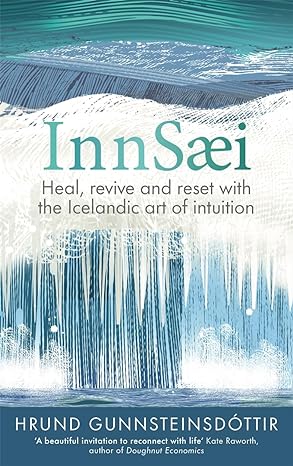Posts Tagged ‘intuition’
Five rituals to access InnSæi (Icelandic word for intuition, “the sea within”) and thrive in the fast-changing attention economy
The world we live in is complex, volatile, fast-changing and non-linear. Everything is interconnected in a system where a small change in one place can cause an unforeseeable impact in another. Metaphorically speaking, the world we live in is very much like the ocean. It is in constant motion, and the ever-changing, unpredictable directions of…
Read MoreStudy finds the limits of putting oneself in another’s shoes (instead, ask and listen)
___ I still remember the time I tried to comfort one of my best friends when her father died. Because I’d lost my own parents years before, I thought I understood her pain. But, when I offered sympathy, she balked. Her father’s death had been transcendent, filled with love and family connection. She didn’t feel…
Read MoreDid You See the Gorilla? An Interview with Psychologist Daniel Simons
If you’ve spent any time on YouTube over the last few years (and you know you have), you’ve likely seen the video of the invisible gorilla experiment (if you’ve somehow missed it, catch yourself up here). The researchers who conducted that study, Dan Simons and Chris Chabris, didn’t realize that they were about to create an instant classic—a psychology…
Read MoreLearning about Learning: an Interview with Joshua Waitzkin
In 1993, Paramount Pictures released Searching for Bobby Fischer, which depicts Joshua Waitzkin’s early chess success as he embarks on a journey to win his first National chess championship. This movie had the effect of weakening his love for the game as well as the learning process. His passion for learning was rejuvenated, however, after…
Read MoreOn Being Certain: Believing You Are Right Even When You’re Not
Where does our “Feeling of Knowing” come from? Have you ever felt certain that you knew an answer even though you couldn’t think of it right off? Where does that “feeling of knowing” come from? The answer to this question is the focus of neurologist Robert Burton’s new book On Being Certain: Believing You Are…
Read MoreTo Think or to Blink?
(Editor’s Note: Should Hamlet be living with us now and reading bestsellers, he might be wondering: To Blink or not to Blink? To Think or not to Think? We are pleased to present, as part of our ongoing Author Speaks Series, an article by Madeleine Van Hecke, author of Blind Spots: Why Smart People Do…
Read More

